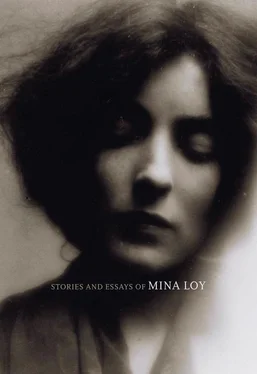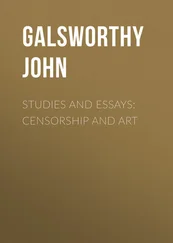Mina Loy - Stories and Essays of Mina Loy
Здесь есть возможность читать онлайн «Mina Loy - Stories and Essays of Mina Loy» весь текст электронной книги совершенно бесплатно (целиком полную версию без сокращений). В некоторых случаях можно слушать аудио, скачать через торрент в формате fb2 и присутствует краткое содержание. Год выпуска: 2011, Издательство: Dalkey Archive Press, Жанр: Современная проза, на английском языке. Описание произведения, (предисловие) а так же отзывы посетителей доступны на портале библиотеки ЛибКат.
- Название:Stories and Essays of Mina Loy
- Автор:
- Издательство:Dalkey Archive Press
- Жанр:
- Год:2011
- ISBN:нет данных
- Рейтинг книги:3 / 5. Голосов: 1
-
Избранное:Добавить в избранное
- Отзывы:
-
Ваша оценка:
- 60
- 1
- 2
- 3
- 4
- 5
Stories and Essays of Mina Loy: краткое содержание, описание и аннотация
Предлагаем к чтению аннотацию, описание, краткое содержание или предисловие (зависит от того, что написал сам автор книги «Stories and Essays of Mina Loy»). Если вы не нашли необходимую информацию о книге — напишите в комментариях, мы постараемся отыскать её.
Stories and Essays of Mina Loy
Stories and Essays of Mina Loy — читать онлайн бесплатно полную книгу (весь текст) целиком
Ниже представлен текст книги, разбитый по страницам. Система сохранения места последней прочитанной страницы, позволяет с удобством читать онлайн бесплатно книгу «Stories and Essays of Mina Loy», без необходимости каждый раз заново искать на чём Вы остановились. Поставьте закладку, и сможете в любой момент перейти на страницу, на которой закончили чтение.
Интервал:
Закладка:
“Most serious—” she stalled for time, herself quite as astonished, but proudly astonished: here was her daughter appealing to her.
I noticed that the door of the cubicle facing Mrs. Nome stood ajar. And now it was I who was astonished. It was not for helplessness before the onslayer that she had attempted no volte-face . Through that aperture peered an eye. Mrs. Nome’s entire astonishment focused on the fortuity of her having a witness.
Out of her cubicle stepped the hairdresser from Killarney, her own black curls wrapped in an emerald scarf — — to tell what had actually occurred.
“Can you beat that?” She panted for laughter, as she and her protégée found themselves, as they thought, alone — –
“I can,” said Mrs. Nome, impersonally, “at any minute. All my life I seem to have been the eternal ‘innocent-accused.’ ”
“And always will be so,” the Irishwoman assured her, taking in hers her hand. “I have seen the psychic mark of the cross on your poor forehead.”
“I can’t get over it,” Mrs. Nome almost stuttered in her bewilderment, “you are the first one ever to testify — —”
“You might have been killed—”
“Oh, no,” said Mrs. Nome, “it’s always by a hair’s breadth.”
II.
Cassandra laid her cheek against her mother’s — “the kiss of a skull. The ashes of love had petrified to a white ossification, her motor-power become an inhibition.” Trying to describe her pallor, the voice of Mrs. Nome fell lower. “I caught a parting wisp of dim phosphorescence leaving the face that was once so luminous. It is so,” she mused with qualities eclipsed, “one almost perceives their ghosts disperse from the person; yet I could feel that ineffable sweetness, which, always a component of her Nature, although denied me, still cling to her.”
“As soon as she left the house,” resumed the distraught creature, “to take the bull by the horns, I turned to Mrs. Moppet.”
“So that’s the effect Gabriel Schwartz has on a woman?”
“Schwartz?!” exclaimed the secretive looking matron with the finality of keeping a promise. “We don’t know anybody of that name.” Then deciding I looked sure, she hurriedly modified her connivance.
“Well yes — — You see your daughter is in love with this man who loves someone else.”
With these few words, spilling the insane love-affair, whose hallucinatory situations I had so long taxed my brain for a solution, into the commonplace, Mrs. Mop immediately widened the discrepancy.
“Have you no pride, I begged her?”
“ ‘I love him,’ Cassandra would whine,” in this friend’s mimicry, erotically.
Shaken with my too sudden readjustment, I tried a casual, “Would you say the thing got so far as an actual liaison?”
“O, I shouldn’t think so” she answered; a reassuring flicker on a mouth which operated smiling as an incessant buttoning up and unbuttoning. “It wouldn’t have been safe; she’s so inexperienced.”
Soon Mop’s married daughter Ilya strayed in, slimly took seat; a fragile silhouette in the temperate autumn glow of the window. She lay back in her wicker chair, silently measured me, and, chance iteration, sighed
“What that man has done to Cassandra!”
Her face was somewhat aimlessly reminiscent of screen stars — having suffered a certain erasure of feature: the unfaded fading of the nocturnal youth of New York. Her sympathy was soft and fair as the floss of her hair, as if anything that touched her must, slightly, turn to gold.
“I feel so badly about it,” she pleaded in helpless regret. “It was I who gave him quite a build-up before introducing him to her. Cassandra whom we so wonderingly admired for being the opposite of what she turned out to be. Her strangely brutal arrogance to the men she attracted made us hold our breath, her aloofness — — was matchless.”
“It has been awful,” continued Ilya, “ Every way that sadist contrived to torture her. Her suffering terrified me. There came a time when she was actually insane.”
My bruises at once absolved, “I had dared to think so,” I proffered, “the violence of her behaviour — — and there was no one with whom I could consult.”
“Pooh,” exclaimed Mop, her expression of slightly rowdy beneficence not changing, as she disappeared into the kitchenette.
“I soon put a stop to it, whenever she began getting violent with me.”
“I hate him! I hate him!” moaned the girl, pounding the plaited arms of her chair— “None of us will have anything more to do with him,” she assured me. “And we had been such friends — all through college.”
“Things might have turned out differently,” commented Mop, returning with coffee, “if, when he was here she had made any of the brilliant remarks she makes when he is not there; but no, she just sat without a word; goggled at him like a love-sick moo-cow.”
“It was love all right,” Mrs. Nome reflected sorrowfully.
“ She didn’t love him,” contradicted Mop, “over and over again I told her, ‘If you got him, you’d be sick of him in a month.’ What she wanted was to get him away from the other girl.”
“She’d wake up in the night — and rage — ‘I’ll kill her, I’ll kill her!’ ”
“But nothing, nothing she could say, would ever interfere with my recognition of my daughter’s love for the man whose face I had never seen.” Mrs. Nome seemed pleading with me to back her up.
That face they brought out for me now from among a miscellanea of photos.
Beach. Naked. An amateur Tarzan. Questionably picturesque, having a certain Greco-Woolworth grace, he had strung about his neck a scatter of sea-shells.
Under handsome hair he gazed from his paper effigy as in a momentary arrest of shifty eyes. Weak for any definite destiny, his mouth, a shapeless snare, thin; contractile as a sting.
“What mean beauty,” cried Mrs. Nome in her surprise.
“I do not remember,” mused Mrs. Nome, “which one of that sub rosa family revealed how Schwartz had made all arrangements to marry my Cassandra over a certain weekend, and disappeared on the eve, to join the other girl who played in some barn theatre. But I knew at once that sunbold summer morning when I crept into her room against the pressure of her grief — should have been her wedding-day — that, then, I had found her lying upon her incomparably betrayed bed of a bride.
“Like those corpses excavated from Pompeii, who in lightning overthrow, sheathed in the lava of Vesuvius, retain the rounded contours of bodies erect, seem to be bounced upon the horizontal, she appeared not to flatten on her mattress; but unsupported, to be stretched out rigid on the axis of her contractile agony. A centripetal demolition of despair, defiant of gravity as if she were too heavy to fall, endowed her with an insane levitation of sorrow become lead.
“On her lovely long body, the facing curves of the inner thighs whispered like marble to the instinct for form. The corner of a sheet she had, in an inalienable reflex of modesty, wafted across her midst, also incompliant to the planes of its location, traversed her as a fallen bar of folded stone.
“Vertical her derouted feet stood to the air, the mounds prominent on the sole as if released from treading further. Noting the guard of her forearm across her eyes, I drew the shades.
“Cassandra cursed me,” concluded Mrs. Nome, looking as she always did, perplexed.
In the mind of the blonde, some unholy imperative attached to her necessity for convincing Mrs. Nome of things inconceivable — –
“After she got rid of the baby, they forced your daughter, in a dangerous condition of haemorrhage, to sit up all night, every night, dragging her with them half dead to — —” and now I could see this blonde’s description of a den of vice projected as it were in television onto the centre of the clapboard; in her aerial colouring, a place suspect to the police, the sale of unlicensed alcohol, with Cassandra, crematorially white, a bleeding jitterbug in the arms of over-familiar negroes. “And they actually had the nerve to invite me there, she spluttered. “Nothing on earth would induce me. . ”
Читать дальшеИнтервал:
Закладка:
Похожие книги на «Stories and Essays of Mina Loy»
Представляем Вашему вниманию похожие книги на «Stories and Essays of Mina Loy» списком для выбора. Мы отобрали схожую по названию и смыслу литературу в надежде предоставить читателям больше вариантов отыскать новые, интересные, ещё непрочитанные произведения.
Обсуждение, отзывы о книге «Stories and Essays of Mina Loy» и просто собственные мнения читателей. Оставьте ваши комментарии, напишите, что Вы думаете о произведении, его смысле или главных героях. Укажите что конкретно понравилось, а что нет, и почему Вы так считаете.












